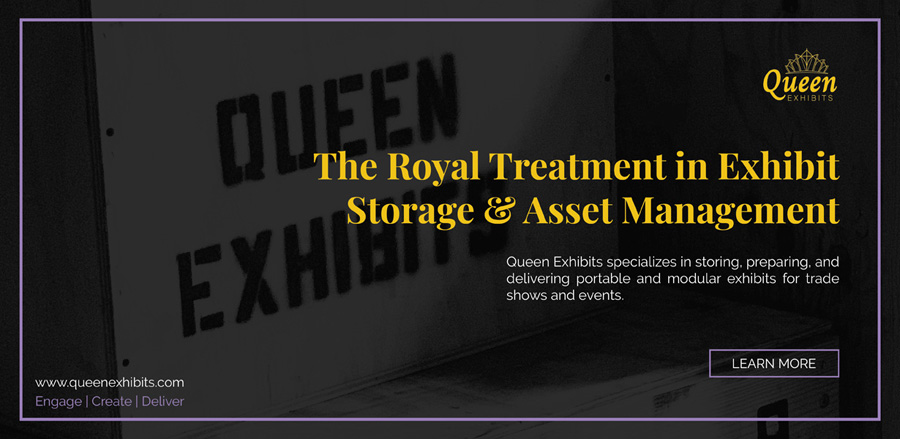| Exhibiting & Event Topics |
EXHIBITOR Magazine |
Find It Marketplace |
EXHIBITOR LIVE |
EXHIBITOR Education Week |
EXHIBITOR eTrak |
CTSM Certification |
EXHIBITOR Insight |
EXHIBITOR Awards |
News Network |
Advertise With Us |

September 2019
Table of Contents
EXHIBITOR Q & A
Live Presentations
What are the benefits of hiring professional presenters, and roughly how much do they cost?
Live Presentations
What are the benefits of hiring professional presenters, and roughly how much do they cost?
ASK DAN
Staffer Dead Weight
I have a staffer who is useless but a favorite of the boss. How can I remove her from the booth-staffing schedule?
Staffer Dead Weight
I have a staffer who is useless but a favorite of the boss. How can I remove her from the booth-staffing schedule?
EXHIBITING 101
Crisis Management
Be prepared for common show-floor snafus by having the necessary supplies on hand.
Crisis Management
Be prepared for common show-floor snafus by having the necessary supplies on hand.
AMMUNITION
Ideas That Work
Big-Ticket Item, Live Wires, Heavy Lifting, and more.
Ideas That Work
Big-Ticket Item, Live Wires, Heavy Lifting, and more.
PRODUCTS
New Tools
HT Series Counters, Giant iTab, Mobile Escape Room, and more.
New Tools
HT Series Counters, Giant iTab, Mobile Escape Room, and more.
QUIZ
See Me, Hear Me
Try to complete this crossword puzzle filled with AV-related terms.
See Me, Hear Me
Try to complete this crossword puzzle filled with AV-related terms.
FIXING SNAFUS
Danger Zone
As the mob reached a fevered pitch, we needed to get our celebrity to safety - and fast.
Danger Zone
As the mob reached a fevered pitch, we needed to get our celebrity to safety - and fast.
ARCHIVE
The Peter Pan Principle
1974: Elaine Cohen works the Supermarket Institute (SMI) Convention for Swift & Co.'s Peter Pan Peanut Butter.
The Peter Pan Principle
1974: Elaine Cohen works the Supermarket Institute (SMI) Convention for Swift & Co.'s Peter Pan Peanut Butter.
CASE STUDY
Lightbulb Moment
How Cree Lighting reset its strategy to meet attendees' needs
Lightbulb Moment
How Cree Lighting reset its strategy to meet attendees' needs
RESEARCH
Get Smart
EXHIBITOR's latest survey shows how attaining professional certification can benefit one's career and marketing program.
Get Smart
EXHIBITOR's latest survey shows how attaining professional certification can benefit one's career and marketing program.
DOUBLE DECKS
Double Vision
These six double decks take innovative design to thrilling new heights.
Double Vision
These six double decks take innovative design to thrilling new heights.
PHOTO GALLERY
Shock Waves
RefleXion Medical's curvaceous exhibit acts as a subtle nod to the company's game-changing radiotherapy machine.
Shock Waves
RefleXion Medical's curvaceous exhibit acts as a subtle nod to the company's game-changing radiotherapy machine.
GRAPHICS
Successful Signage
Here are 11 examples of exhibitors that created head-turning graphics using simple substrates.
Successful Signage
Here are 11 examples of exhibitors that created head-turning graphics using simple substrates.
PORTFOLIO
Desk Jobs
Six standout reception desks to inspire your next design.
Desk Jobs
Six standout reception desks to inspire your next design.
TEN BY 10
International Exhibiting
We asked 10 experts to share their tips and insights on working with overseas vendors.
International Exhibiting
We asked 10 experts to share their tips and insights on working with overseas vendors.
Stay Informed
To be notified of new content from Exhibitor Magazine, please enter your e-mail address:
To be notified of new content from Exhibitor Magazine, please enter your e-mail address:

